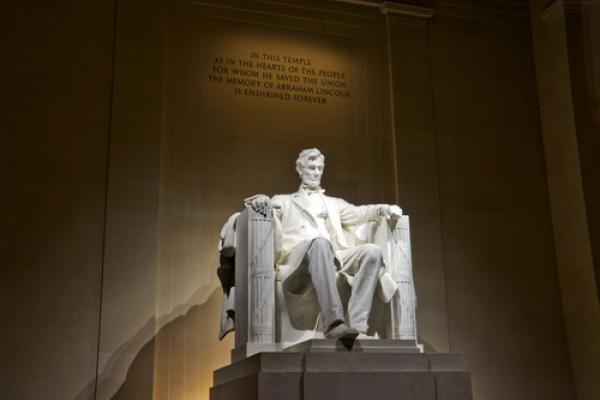I didn’t expect to leave a Friday night screening of Lincoln thinking about Jesus.
And I definitely didn’t expect the link to be an Italian political philosopher named Grigorio Agamben.
But of Lincoln’s many triumphs as an Oscar-season contender, its lasting effect is its surprisingly mature meditation on wisdom, freedom, and the necessity of employing the former when granted the latter.
Watching Lincoln reason aloud his justification for the Emancipation Proclamation, an act he admits to his advisors was dubiously legal at best, we encounter the film’s driving question: in a time of crisis when the rules no longer apply, what kind of moral vision do we want in leadership?
Agamben calls such a time of crisis a ‘state of exception’; that is, a period of national emergency, during which a leader is given or takes power to act outside the law in the name of the public good. Agamben’s writings explore how a leader in a declared state of exception may take on almost dictatorial power, and what ramifications this new power has on the law of the land.
The Civil War was a dramatic state of exception, and aside from the generals on the battlefield, Lincoln was the only one who could keep the creaking cask of the union from bursting apart. In the film, Lincoln uses the Emancipation Proclamation as a first step towards shifting the end of slavery from a distant ideal to a pragmatic necessity by which the war can end.
Of one the most self-aware sayings attributed to Lincoln, though not in the film, goes: “Any man can withstand adversity. If you want to test a man’s character, give him power.” Watching the film, I was struck by how fortunate our divided nation was to have a man of such character at the helm in such a crisis.
Lincoln muses on our ideas of moral leadership in the political realm. But as Christians, thinking on leadership in a state of exception also leads us to the cross.
Like Lincoln, we live in a world whose challenges cannot wholly be met by the systems and laws in place. Like Lincoln, we live between times: after the bonds of the old earth have been broken, but before a new Earth has fully come. We live in a season of already-but-not-yet; an Advent.
Through Jesus, God ushered in a new ‘state of exception’ for His people. Jesus was a leader for whom basic laws of nature, never mind culture or religion, simply did not apply. “All authority has been given to me in Heaven and in the earth,” he tells us in Matthew (28:18). “[I]n the manner in which my Father has sent me, I am sending you.”
In a short but striking scene, Lincoln asks his house servant Elizabeth what she will do with her newfound freedom. “I don’t know,” she replies.
As an emancipated body, Christians must also ponder this question.
As participants in a democracy, we have the great ability to advocate for leaders whom we are confident will lead with wisdom and humility in times of exception. We have the grounding to speak truth to political power to demand justice and call for mercy in the public sphere as well as in our daily lives.
And we can take cues on wisdom from those who have gone before. In another film that grapples with moral leadership in times of crisis, A Man for All Seasons, Sir Thomas More, Lord Chancellor to Henry VIII, pinpoints Christian responsibility thus: “God made the angels to show Him splendor, as He made animals for innocence and plants for their simplicity. But Man He made to serve Him wittily, in the tangle of his mind.”
Or as Saint Paul writes in his letter to the Galatians (5:1): “It is for freedom that Christ has set us free. Stand firm, then, and do not let yourselves be burdened again.”
In our freedom and power, we live in a state of exception to the ways and laws under which the world still works. That, as it did with Lincoln, should give us pause for reflection.
This month we celebrate the birth of Jesus, the man who ushered in a state of exception for each of us and for the world. In January, we will witness the re-inauguration of President Barack Obama, a man the country elected to hold the nation together, even while facing similar threats of secession and a gridlocked Congress; who has sworn, whatever new states of exception arise in our country, to defend the law and to preserve us and our posterity.
When the rules no longer apply, what kind of moral vision do we want in leadership?
‘Tis the season to serve God wittily.
Catherine Woodiwiss is a Special Assistant with the Faith and Progressive Policy Initiative for Center for American Progress.
Lincoln memorial, © Mesut Dogan | View Portfolio / Shutterstock.com
Got something to say about what you're reading? We value your feedback!
